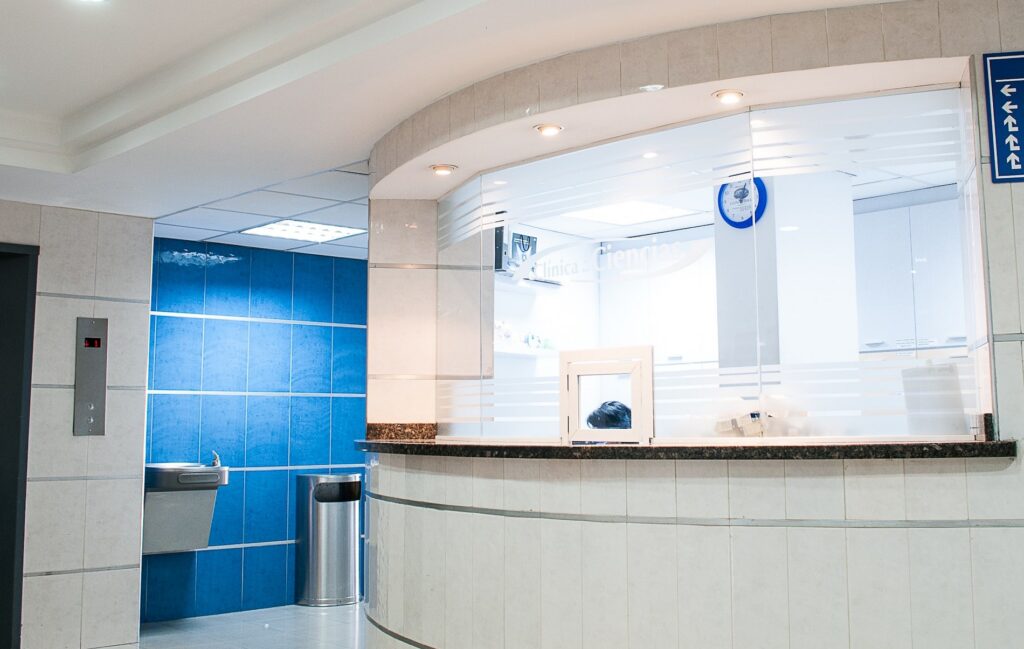A medical credentialing specialist is responsible for reviewing the qualifications of healthcare and medical professionals to make sure that all practitioners meet the standards set by the organization. This is an important role, since it helps ensure that patients work with trained and certified professionals to receive quality care.
Let’s review the role in more detail as well as salary and career prospects.
What Is a Medical Credentialing Specialist?
Medical credentialing specialists are essential members of the healthcare team. Their day-to-day responsibilities include verifying credentials such as licenses and degrees, as well as making sure that providers are up to date on their continuing education requirements. Credentialing in jobs like this can assist physicians to nurses to allied health, and it is a vital part of the onboarding process at companies.
Medical credentialing specialists typically work in the human resources or medical records departments of hospitals and other healthcare facilities. Some may also work for third-party organizations that provide credentialing services to multiple clients.
Medical credentialing is a great entry into the healthcare field. There are opportunities to grow on the human resources side of the industry when starting as a medical credentialing specialist, and it is a great way to get to learn the business of healthcare.
Responsibilities of a Medical Credentialing Specialist
The job duties of a medical credentialing specialist can vary depending on the size and type of organization they work for. In general, though, their responsibilities include maintaining provider databases, processing applications for new staff members, conducting background checks, and verifying credentials. They may also be responsible for tracking provider privileges and renewals and investigating any complaints against providers.
Skills Needed to Be a Medical Credentialing Specialist
Some of the expertise needed for this role include:
Strong Organizational Skills
Organizational skills are important for medical credentialing specialists since they must keep track of multiple deadlines and ensure that all the required documentation is in order. Lack of organization could lead to errors that could jeopardize a provider’s ability to practice.
Attention to Detail
Since medical credentialing specialists are responsible for verifying credentials, it is essential that they have a strong attention to detail and can spot even the smallest error. A good credentialing specialist will know how to then follow up to get an error corrected properly.
Analytical Skills
Medical credentialing specialists need to be able to understand and interpret data, since they will often be looking at provider applications and trying to determine if the professional meets all the requirements. They must also be able to see patterns and trends in the data—which can help them predict future needs.
Writing Skills
Since medical credentialing specialists often have to communicate with providers, it is important that they have strong writing skills to clearly and concisely explain any process or requirements. They may also need to write letters of recommendation or other types of correspondence.
Computer Skills
A good credentialing specialist should have strong computer skills including various software programs including databases and spreadsheets. In today’s world, most businesses use some type of computerized system, and medical credentialing is no different.
Good People Skills
Medical credentialing specialists need to have good people skills since they will interact with providers regularly. They should be able to build good relationships and communicate effectively.
Ability to Communicate Effectively
Medical credentialing specialists need to be able to communicate effectively with providers and other staff members in the organization. They should be able to understand complex information and explain it in a way that others will understand.
Good Understanding of Medical Terminologies
Medical credentialing specialists need to be comfortable with medical terminologies since they will be working with medical professionals on a daily basis and reading and reviewing provider applications. This knowledge will help them understand the information in the application and make an accurate assessment.
Teamwork Skills
Medical credentialing specialists need to be able to work well as part of a team. They should be able to take direction from their supervisor and work collaboratively with other members of the credentialing team.
Strong Research Skills
Medical credentialing specialists need to have strong research skills since they will often be required to do research on their own. This could involve researching medical terminology, provider backgrounds, or other topics related to the role.
Understanding of Laws and Regulations
Medical credentialing specialists need to understand the laws and regulations that pertain to their field. They will need to be up-to-date on any changes in the law and know how they impact the credentialing process.

What qualifications are needed to be a medical credentialing specialist?
A bachelor’s degree is sometimes preferred for this position. However, some employers hire medical credential specialists with a high school degree or a two-year college degree. The National Association Medical Staff Services (NAMSS) offers the Certified Provider Credentialing Specialist (CPCS) credential.
Medical Credentialing Specialist Salaries
The median annual compensation for medical credentialing specialists was $40,000. The top earners in this field made more than $60,000 while the lowest earners made less than $32,000.
The Job Outlook for Medical Credentialing Specialists
Employment in the medical field is projected to grow 32 percent from 2020 to 2030, much faster than the average for all occupations. In addition, the aging population and recent changes to healthcare laws are expected to increase the demand for qualified healthcare providers, leading to more job openings for medical credentialing specialists.
Medical Credentialing Specialist Job Description Templates
We are looking for a medical credentialing specialist to join our team. The ideal candidate will have a minimum of two years of experience in the medical field and be knowledgeable in medical terminology.
The primary responsibility of this position is to review and approve provider applications for our healthcare network. Other duties include maintaining database records, communicating with providers, and providing customer service support.
Or
We are looking for a fresher for a role as a medical credentialing specialist with our company. The job responsibilities would include:
- Review and approve provider applications for the healthcare network
- Maintain records in a database
- Verify credentials
- Communicate with providers and handle their queries
The ideal candidate should have some experience in the medical field, although this is not mandatory. They must be comfortable working in a team environment and have excellent communication skills.
What are some related alternative careers to a medical credentialing specialist?
A medical credentialing specialist might want to explore other career options in the healthcare industry if they are looking for a change. Some related jobs include:
Medical coder
As a medical coder, you’ll be responsible for translating medical reports into a code that staff and insurance companies can use to process claims. A medical coder typically needs to have a certificate or associate degree in medical coding.
Medical biller
As a medical biller, you will be responsible for submitting insurance claims and following up on unpaid bills. A medical biller typically needs to have a certificate or associate’s degree in medical billing.
Healthcare Administrator
A healthcare administrator is responsible for overseeing the daily operations of a healthcare facility.
Medical Records Technician
As a medical records technician, you will maintain and organize patient medical records. A medical records technician typically needs to have a high school diploma or equivalent.
Clinical Research Associate
As a clinical research associate, you’ll be responsible for conducting clinical trials to test new medical treatments. A clinical research associate typically needs to have a bachelor’s degree in life sciences.
Clinical Data Manager
As a clinical data manager, you will manage and analyze patient data. A clinical data manager typically needs to have a bachelor’s degree in health information management or a related field.

FAQ About a Medical Credentialing Specialist
What does a typical day involve?
They may be reviewing and approving applications, maintaining patient records, or providing customer service to members and providers.
Is credentialing stressful?
The credentialing process requires a great deal of attention to detail and accuracy. However, medical credentialing specialists are typically able to work independently and have a high degree of control over their workday.
The role of a medical credentialing specialist is essential to hospitals and other healthcare organizations. If you are interested in pursuing a career as a medical credentialing specialist, we hope this information has been helpful as you look at the next steps in your career path.
When you’re ready to work for a new company or kickstart your medical career, head over to the Insight Global job board, where you will find thousands of healthcare staffing opportunities.


 by Erin Ellison
by Erin Ellison 


 by Brita Long
by Brita Long 
 by Patrick Glynn
by Patrick Glynn 
 by Anna Morelock
by Anna Morelock 